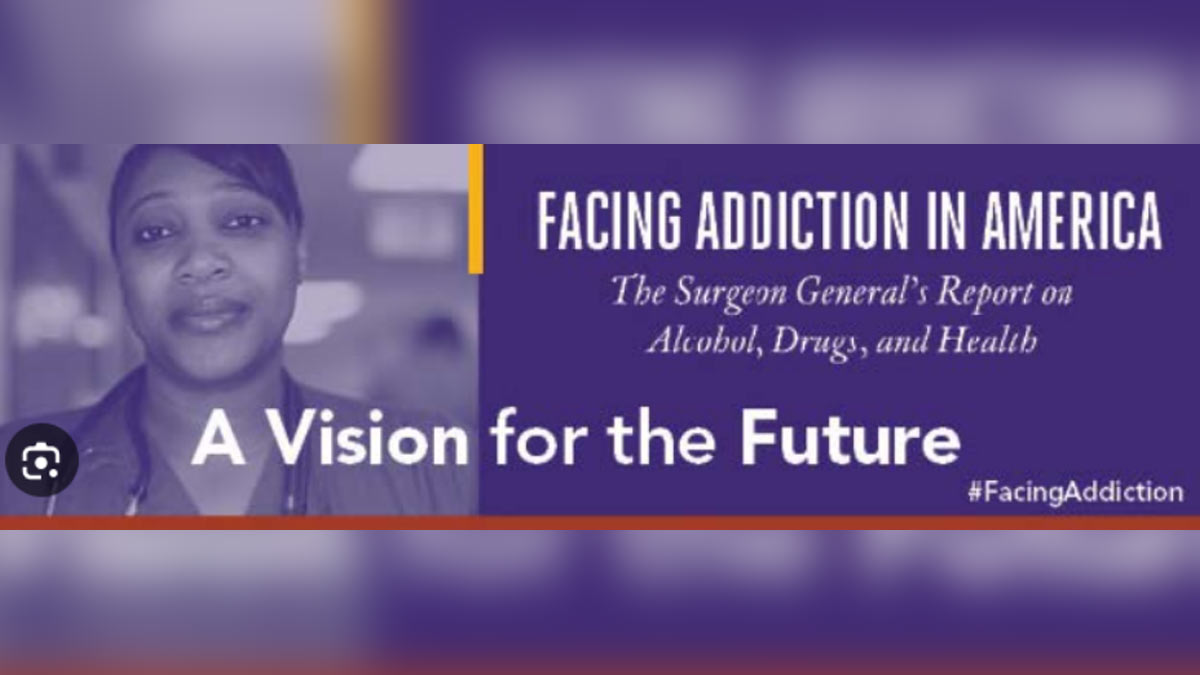
Addiction isn’t a choice, it’s a disease. Yet, the shame and stigma attached to it often feel heavier than the addiction itself. These feelings isolate us, making recovery feel like an insurmountable climb. But it’s not.
Many have walked this path, finding freedom and healing. We’re going to dismantle the wall of stigma, brick by brick, and uncover the path to seeking help, choosing treatment, and rediscovering hope. This is about reclaiming your life, one step at a time.
First Off, Let’s Talk About What is Addiction & Stigma?
Addiction isn’t about a lack of willpower or a moral failing. It’s a complex disease that affects the brain, changing how it experiences pleasure and reward. Our brains are wired to seek pleasure, and substances or behaviors that provide intense pleasure can hijack this system.
Over time, the brain becomes less responsive to natural rewards, making the substance or behavior the only source of pleasure. This leads to a compulsive need, despite harmful consequences.
April Lyons, Licensed Professional Counselor at April Lyons Psychotherapy Group, says, “Addiction can be fueled by genetics, environmental factors, or trauma, but it’s important to remember it’s not a choice. On the other hand, Stigma is often the shadow that follows addiction. It’s the judgment, the whispers, the isolation. We can break stigma down into two types.”
- Social stigma is the discrimination and negative stereotypes society holds about people with addiction. These stereotypes paint a picture of weakness and irresponsibility, pushing those struggling further into the shadows.
- Self-stigma is the shame and self-blame individuals with addiction internalize. This can lead to feelings of worthlessness and hopelessness, making recovery seem impossible.
The stigma cycle is a vicious one. It starts with societal judgment, which leads to self-blame and shame. This shame prevents individuals from seeking help, fearing further judgment. This isolation fuels the addiction, reinforcing the negative stereotypes. It’s a cycle that keeps people trapped, but it’s a cycle we can break.
Understanding addiction as a disease and stigma as a barrier is crucial. It’s not about assigning blame, but about creating understanding.
Vladimira Ivanova, Psychologist at The Diamond Rehab Thailand, explains, “When we see addiction as a disease, we open the door to compassion and support. When we dismantle stigma, we create a safe space for individuals to seek help without fear.”
The journey to recovery is challenging, but it’s possible. By breaking the stigma cycle, we can create a society where addiction is treated with understanding and compassion, not judgment and shame.
Now, let’s talk about how to overcome stigma and shame.
Strategies for Overcoming Stigma and Shame
Here are some key strategies for overcoming stigma and shame.
Individual Level
The first step towards overcoming stigma and shame is to extend compassion to yourself. Acknowledge that addiction is a complex medical condition, not a character flaw or a sign of weakness.
Recognize the courage it takes to even acknowledge the problem, let alone seek help. Be kind to yourself, and avoid harsh self-criticism. Plus, replace negative thoughts with positive affirmations.
Instead of saying, “I’m a failure,” tell yourself, “I’m brave for facing this challenge.” This change in mindset, while seemingly small, can make a world of difference.
Matthew Schulman, M.D, Award Winning Plastic Surgeon at Dr. Schulman Plastic Surgery, adds, “Building a supportive network is crucial. Connect with others who understand the struggles of addiction. Support groups offer a safe haven where you can share experiences, learn from others, and receive encouragement without judgment.”
Therapists specializing in addiction can provide individualized guidance and equip you with tools to manage cravings, cope with triggers, and rebuild your life. Remember, seeking professional help is a sign of strength, not weakness. You are taking a crucial step towards healing and recovery.
Community Level
The fight against stigma extends beyond the individual. Everyone can contribute to creating a more understanding and supportive environment. Start by educating yourself and others about the realities of addiction. Learn about its causes, its impact on the brain, and the available treatment options. When we understand the science behind addiction, we replace fear and judgment with empathy and compassion.
Warren Phillips, Co-Founder of Lantana Recovery, adds, “Sharing personal stories, if you’re comfortable, can be powerful. Speaking openly about addiction helps normalize the conversation and break down barriers.” If you’re not ready to share your own story, listen to others who are. By simply listening with an open mind, you can create a safe space for dialogue and understanding.
Challenge stereotypes and misconceptions whenever you encounter them. Speak up when you hear harmful jokes or discriminatory comments. Educate others on the importance of person-first language. Instead of saying “addict,” say “person with addiction.” This small change in language emphasizes the person’s humanity and removes the stigma associated with labels.
Advocate for change in your community. Support initiatives that increase access to treatment, promote education, and reduce discrimination. Participate in awareness campaigns, volunteer at local organizations, or simply talk to your friends and family about the importance of compassion and understanding.
Tiago Pita, Brand and E-commerce Director of Whole Food Earth, adds, “A community that supports those in recovery is a stronger, healthier community for everyone.”
For example, the Surgeon General’s Report on Alcohol, Drugs, and Health, released in 2016, aimed to educate the public about addiction as a chronic brain disease and dispel common myths and stereotypes.
ImageSource: National Institute on Alcohol Abuse and Alcoholism
The report emphasized the importance of evidence-based treatment and prevention strategies. By sharing information like this with your friends, family, and community, you contribute to a better understanding of addiction.
Build a Circle of Support
Recovery doesn’t have to be a solitary journey. In fact, it’s often easier when you have a solid support system by your side. Reach out to your family and friends – those who genuinely care about you. Share your struggles with them, and let them know you need their love and encouragement. Their understanding and support can be a powerful antidote to shame.
Idan Avitan, CEO of Growee, says, “If you feel comfortable, consider joining a support group. Connecting with others who are going through similar experiences can be validating and empowering. It’s a safe space where you can share your story without fear of judgment, learn from others, and offer support in return.”
Therapy or counseling is a valuable tool. A therapist can provide a listening ear, offer guidance, and help you develop healthy coping mechanisms. They can also help you work through any underlying issues that may have contributed to your addiction. Remember, seeking help is a sign of strength, not weakness.
So, by reaching out and building a support system, you’re taking an important step towards a healthier, happier you.
Rewrite Your Story
We often tell ourselves stories about who we are and what we’re capable of. If you’re struggling with addiction, these stories might be filled with negativity and self-doubt. It’s time to change the narrative.
Start by identifying the negative beliefs you hold about yourself. Are you telling yourself you’re weak, unworthy, or destined to fail? These thoughts are not facts; they’re just stories you’ve created.
Plus, challenge these stories by replacing them with positive affirmations. Remind yourself of your strengths, your accomplishments, and your potential for growth. Surround yourself with positive messages and supportive people who believe in you.
Matt Grammer, Founder & CEO of Therapy Trainings, shares, “Recovery is a journey of self-discovery. It’s about learning to love and accept yourself, flaws and all.”
As you challenge negative beliefs and rewrite your story, you’ll start to see yourself in a new light. You’ll recognize your inherent worth and your capacity for change. This shift in perspective can be empowering.
It can give you the strength and motivation you need to overcome any obstacle on your path to recovery. Remember, you’re the author of your own story. So, choose to write one filled with hope, healing, and transformation.
Educate Others and Challenge Stigma
One of the most powerful ways to overcome stigma is to become an advocate for change. By sharing your personal story and educating others about addiction, you can help break down stereotypes and misconceptions. When you speak openly and honestly about your experiences, you challenge the stigma that surrounds addiction and create space for understanding and compassion.
Consider sharing your story with friends, family, or colleagues. You could also write a blog post, give a presentation, or volunteer with an organization that supports individuals in recovery. Remember, your voice matters. By speaking out, you’re not only helping yourself heal but also contributing to a more supportive and inclusive society.
For example, in 2019, Demi Lovato, a well-known singer and actress, opened up about her struggles with addiction in a powerful documentary titled “Simply Complicated.”
Image Source: The Impact
In the film, she shared her personal journey of recovery, including her relapses and challenges. By speaking candidly about her experiences, Lovato helped to humanize addiction and challenge the stigma associated with it.
As she stated in an interview with Harper’s Bazaar, “The more we talk about mental health, the less stigma there is. And the less stigma there is, the more people feel comfortable coming out and seeking help.” Lovato’s willingness to share her story has inspired countless others to seek help and speak openly about their own struggles with addiction.
Focus on Your Growth and Well-being
Recovery is a journey of transformation, a chance to rediscover yourself and build a fulfilling life. While facing the challenges of addiction head-on is crucial, it’s equally important to shift your focus towards personal growth and well-being.
Dahlia Rice, M.D, Owner & Plastic Surgeon of DMR Aesthetics Chicago, advised, “Set meaningful goals that inspire you and give you a sense of purpose. These could be anything from learning a new skill to volunteering your time or simply spending more time doing things you enjoy. As you achieve these goals, celebrate your successes and acknowledge your progress.”
Take care of your physical and mental health. Eat nutritious foods, exercise regularly, get enough sleep, and practice relaxation techniques like meditation or yoga. Engage in activities that bring you joy and help you manage stress. By prioritizing your well-being, you’re strengthening your foundation for lasting recovery.
Remember, recovery isn’t just about overcoming addiction; it’s about creating a life you love. It’s about discovering your passions, nurturing your relationships, and finding joy in the simple things. By focusing on your growth and well-being, you’re paving the way for a brighter future, one where addiction no longer defines you.
How to Create a Supportive Environment for Seeking Treatment
Breaking down the barriers of stigma and shame isn’t just an individual effort. It requires a collective shift in how we, as a society, view and address addiction.
Gerrid Smith, CMO of Joy Organics, shares, “We need to create a supportive safety net that encourages individuals to seek help without fear of judgment or discrimination.”
Raise Our Voices
We have the power to shape a better future for those struggling with addiction. By advocating for policies that expand access to affordable treatment, support research on addiction, and reduce barriers to care, we can create a system that prioritizes recovery.
Organizations like the Addiction Policy Forum and the National Council on Alcoholism and Drug Dependence (NCADD) are leading the charge, working tirelessly to change laws and attitudes.
Community
Local initiatives and community organizations also play a crucial role. They offer support groups, educational programs, and resources that empower individuals and families affected by addiction. By encouraging a sense of belonging and connection, they create safe spaces where people can find hope and healing.
Spread the Word
Education is a powerful weapon against stigma. When we share accurate, compassionate information about addiction, we dispel myths and stereotypes that perpetuate shame. Public health campaigns like the Surgeon General’s Report on Alcohol, Drugs, and Health have raised awareness and challenged long-held misconceptions about addiction.
Choose Words Wisely
The language we use has a profound impact on how we perceive addiction and those who struggle with it. Using person-first language, like “person with a substance use disorder” instead of “addict,” helps shift the focus from the problem to the person.
Avoiding stigmatizing terms like “junkie” or “alcoholic” also helps create a more respectful and supportive environment.
Let’s take Portugal’s Success Story, as an example:

Image Source: Substance Abuse Treatment, Prevention, and Policy
Portugal’s decriminalization of all drugs in 2001 and subsequent focus on harm reduction and treatment is a powerful example of how policy changes and a shift in societal attitudes can lead to positive outcomes.
By treating addiction as a health issue rather than a criminal one, Portugal has seen a great decrease in drug-related deaths, HIV infections, and overall drug use.
Wrap Up
Addiction isn’t a battle fought alone. It’s a shared journey of healing and understanding. By embracing self-compassion, building supportive communities, and advocating for change, we can dismantle the stigma that isolates and shames.
Remember, recovery is possible, and seeking help is an act of courage, not weakness.
Let’s create a world where addiction is met with compassion and support, not judgment and isolation. Together, we can break down barriers and pave the way for healing and hope.

